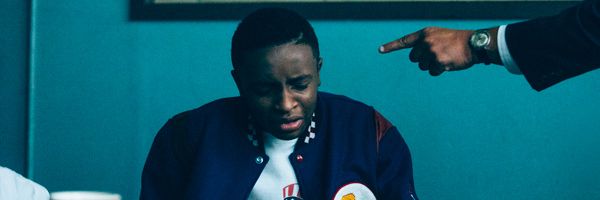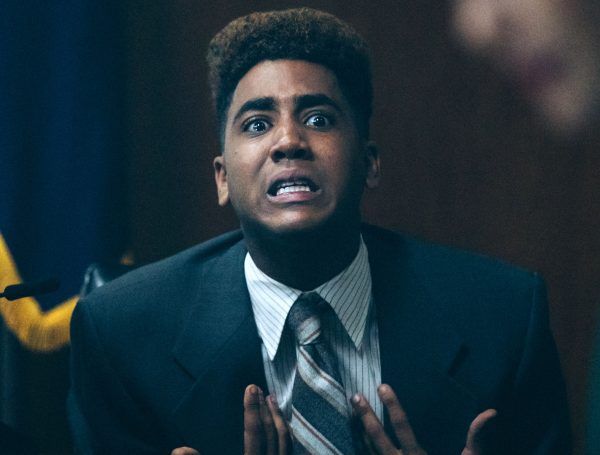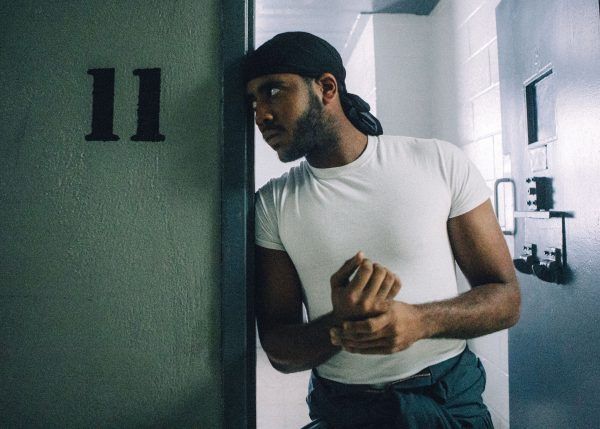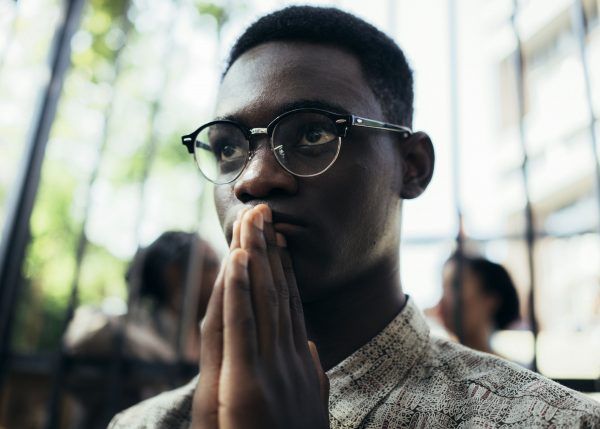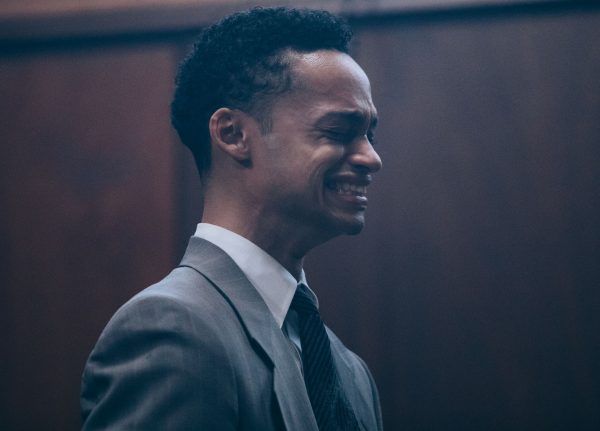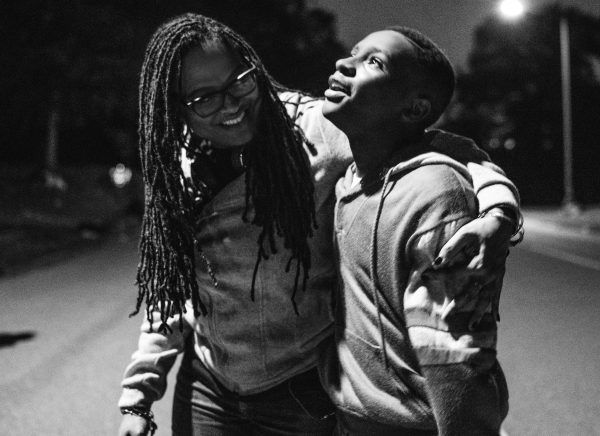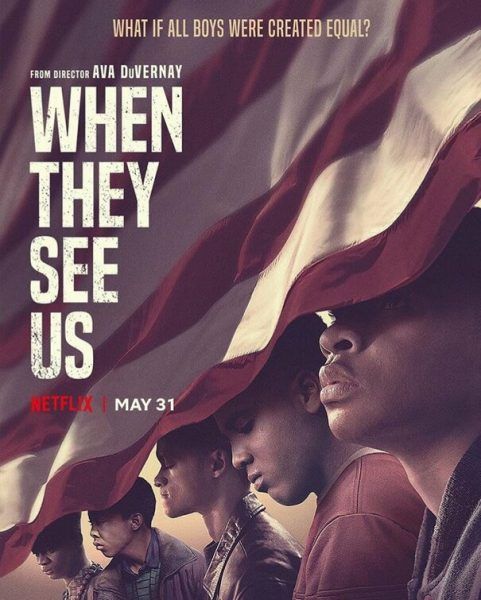Created, co-written and expertly directed by Ava DuVernay, the four-part Netflix limited series When They See Us chronicles the notorious case of the five teenagers of color from Harlem – Antron McCray, Kevin Richardson, Yusef Salaam, Raymond Santana and Korey Wise – who became labeled the Central Park Five, after being accused of a violent rape in New York in the spring of 1989. After being questioned as teenagers and pressured to confess, they were convicted and sentenced and served between 6 and 13 years in prison before their exoneration in 2002, and watching their journey will break your heart, turn you into a sobbing mess who’s angry at the injustice of it all, and inspire hope.
During this phone interview with Collider, co-stars Jharrel Jerome (Korey Wise), Asante Blackk (Kevin Richardson), Caleel Harris (Anton McCray), Ethan Herisse (Yusef Salaam) and Marquis Rodriguez (Raymond Santana), who are all so fantastic in the series that their performances will haunt you long after, talked about how they came to be a part of When They See Us, what most angered them and what most inspired them about this story, the safe and supported environment Ava DuVernay created on set, and how they feel they’ve been personally affected by this project.
Collider: First of all, tremendous work in this, from all of you. Everything about this, from the way the story is told to how beautifully and thoughtfully it’s handled, it really is something that all of you should be truly proud of, on every level. How did each of you come to this project?
JHARREL JEROME: For me, I had originally auditioned via a self-tape for Ava [DuVernay] with a lot of hair on my face. I was doing a project, so I had a full-grown beard, and she loved the performance, but she couldn’t see me as young Korey, unless I shaved, and I couldn’t shave because I was tied to a contract for the show. It took four months straight, of me talking to my team saying, “Did they cast? Did they cast? Did they cast?” And finally, by the end, they hadn’t. So, I wrapped, I shaved, I went straight to New York, and I spoke to Ava, face-to-face. When she saw me, she was so confused. She didn’t know if I was 40 years old or ten years old, because I look like a whole different person when I shave my face. I think that definitely guided her choice to cast me as both parts.
ASANTE BLACKK: For me, it started with the normal audition process. I auditioned in New York, and I thought that I did a bad job, but I guess not ‘cause they called me back. After the callback, I had a Skype audition with Ava and, at that point, my mind was blown. After the Skype audition, the director’s session with Ava was out of this world. We did the sides, and then we just talked for a little bit. And then, about a week later, she called me personally and told me that I got the part, and I was ecstatic. It was amazing!
CALEEL HARRIS: For me, I got the audition through my agent, and once I got the audition, I did a lot of research about the case and what it was about, and I was really, really determined to go out and get this. So, I sent in a self-tape, and I guess they loved the self-tape. Ava wanted me to read, but I couldn’t make it because I was in another state. They flew me in on the weekend, and I went in and did a director’s session with her, and it was incredible. We read the sides for a little bit, and we talked for a long time about the project and what it’s about. And then, about a month later, she called my personal phone and said that I got the part. I was literally running throughout the entire house, touching the ceiling and everything. She didn’t know what was going on and was like, “Hello?” It was incredible. I’ll never forget it.
ETHAN HERISSE: My situation was similar to Caleel’s, where I got the audition from my manager. I did tons of research on the role, and I watched the Ken Burns documentary, before I went in. I got called back, and then ended up getting to the director’s session with Ava, where similarly, we just did lines for a little bit, and then spent the majority of the time just talking about the case and about things that I had done before. To be able to sit in the room and just talk with Ava, at that point, was incredible. And then, I found out, a month or so later, that I had gotten the role. That was an incredible moment.
MARQUIS RODRIGUEZ: My process was really similar. Finally, when I got in the room with Ava, we just read the sides together and I thought it went really well. We stopped and spoke about the character and the project, and she, unbelievably so, offered it to me in the room. That was the first time anything like that has ever happened to me, and it was one of the most incredible experiences I’ve ever had. I just remember, when she offered it to me, she asked, just to be straight up and honest, if I could do it, and I said, “Yes!” I knew that it would be hard, and I knew it would be one of the most important things I’ve ever been a part of, but I was so ready to do it.
This is a story that is as inspiring as it is devastating. There are so many moments that make you angry, that feel so tragic, and that also leave you with some feelings of hope. When you really into this story, what most angered or upset you, and what most inspired you about it?
RODRIGUEZ: I think what made me so angry, immediately off the bat, was just how alone they were, in this process. There were very few people that were on their side, completely. The media had done such a good job of painting them as the wolf pack, and as this gang of boys that had gone into the park with the express intent to commit this crime. So, they were alone in their endeavor to get the truth out, and that really made me so angry.
HERISSE: And on the opposite end of that, what I find most inspiring about it is how these men came out of the situation. Justice was served, and they were found innocent and exonerated, but most importantly, their spirit never broke. You can see that when you interact with them, and you can see that when you speak to them. They are happy, bright, wonderful, intelligent men, that are just happy to be alive. They’re survivors. The strength that they had to muster up, to go through that when they were teenagers, and to have their youth robbed from them, it’s unbelievable. And for them to be the way they are right now is incredibly exciting.
HARRIS: I definitely second what Ethan said. They’re such inspiring people, just in how they never lost faith and how they always kept their hope up. And for Antron, his faith is really based on the fact that truth was going to come out. And I just feel like, never losing faith in that type of situation, when you were done so wrong, and still being strong and holding your head high, is something that not a lot of people can do. And for them to do it like that, and come out with such grace, and to be such lights and have such radiant personalities, is just an amazing thing. It’s inspiring.
I read that because the subject matter was so dark, Ava DuVernay provided a crisis counselor on set. Did any of you take advantage of that, or did you have other ways to help you get through some of the darker moments that you had to shoot?
JEROME: I didn’t necessarily call the number myself, but to know that it was there was very relieving, and it was definitely so helpful. I haven’t been on a set where the production team and the director really cares for their actors so much. Just to have it there was so helpful. But to be honest, my counselor was Korey Wise, himself. He was my therapist, throughout the whole entire process. He kept me calm, and he understood what I was going through, but I also understood that I would never, ever be able to fill his shoes, or ever be the type of person that he is. But to have him at my side, and when Ava called cut, to look at him laugh and go, “You Korey Wise. You look like me now, too,” just saying things like that, it was very inspiring. He kept me grounded. So, I think the best thing Ava did for us was to actually bring those real men around us, and their presence.
BLACKK: I didn’t necessarily take advantage of the line, but I feel like Ava, herself, just made us all feel okay on set, even in the darker scenes. I remember the verdict scene, when we were in the court room, it was very hard to get through. When they call, “Cut!,” it’s usually very easy for me to snap out of the emotion. With he interrogating scene and the other scenes, it was easy for me to snap out of that. But in the verdict scene, it was very tough. It’s not in the episode, but Kevin’s mom actually had a stroke in that courtroom, as he was being dragged away to be taken to prison. Just going through that and imagining not knowing where your mom is, how she’s doing, and when the next time you’re going to see her is, was very, very hard to go through. I carried that with me, after they said, “Cut!” But Ava was always right there, always making sure. When me and Jharrel had our courtroom scene together, she was there for us. She was always there for a shoulder to lean on.
HARRIS: I didn’t really utilize the line either, but like Asante said, I felt like Ava was really just that blanket and comforter on set. For some scenes, like the verdict scene and his mother’s scene, I had to put myself in a very dark place, which is a place I haven’t visited in a long, long time. With the verdict scene, even after they said cut, I couldn’t get out of it. I couldn’t get out of that mode and mind-set that I was in. And it’s sad to know that was really what they were going through, and that they really were in that mind-set and they had to go through that. I just remember, after they called cut, tears were still streaming down my face. Ava came and she had tears in her eyes, and she just gave me the biggest hug. That meant the world to me. I swear, I’ll never forget it. It was so special. Just her being that blanket and comforter on set was amazing.
An experience like this must change you, personally, and not just as actors. Going through this with each other, going through it with Ava DuVernay, and having the real guys there, how do you feel like you’ve changed and been affected by being a part of telling this story?
RODRIGUEZ: It’s not much of a change, but just the knowledge that I’ll be able to have this, forever. No one can ever take away the fact that I was part of something like this. I got to use my art and use my craft in an effort to speak truth to power, and to bring to light a story that really needs to be acknowledged, and really needs to be looked at and examined very closely. So, I think I’ve changed, in that way, just that I have this now.
JEROME: I think I’ve changed, both positively and negatively. In terms of negatively, I now walk around with a little more fear than I did, a year ago, with more looks behind my shoulder. Every time I see a cop now, I have a million things going on in my head. I can’t think of Central Park the same anymore. It used to be my favorite part of growing up in New York. So, I have changed in that way. In terms of positively, I have never had more faith and hope inside me before. I believe now. I truly believe in the fact that will can overpower hate, and that your self-love and self-strength and courage can really speak volumes. These men proved it to me. And so, I now believe, and I think that’s a beautiful thing.
HARRIS: I definitely feel like this project has changed me. Before I got this audition, I hadn’t had to take a stand. After I got it, I went and did my research, and it changed me. My eyes were opened to the world and what was really going on. I hadn’t had that look on the world before, like Jharrel said, even in a negative way. Especially when there’s cops around, I don’t walk around the same because there is that fear. There’s that thing that this could happen to me, just as easily as it happened to them. I just feel like knowing these men and how strong they were to go through what they went through, it changed me, in a sense that you still know there’s people out there who are so strong and have so much hope, and who didn’t let their circumstances change who they are inside.
HERISSE: Just to piggyback off of what Caleel and Jharrel are saying, I’m not as naive as I once was. This entire project has really opened my eyes and shown me just how bad things can get in America for people of color. I had always grown up knowing that, if I’m ever unfortunate enough to get into an altercation with the police, to be polite and speak your truth, and everything will end up being okay. But after this experience, I now feel like that’s no longer the case because, even if I am polite and speak my truth, I can end up in a situation where I don’t come home for 7 to 14 years. I think that’s the biggest change that’s occurred to me.
When They See Us is available to stream at Netflix on May 31st.

